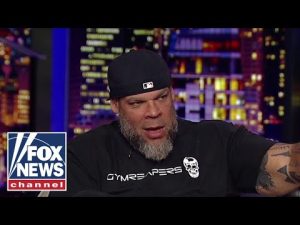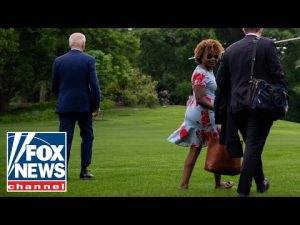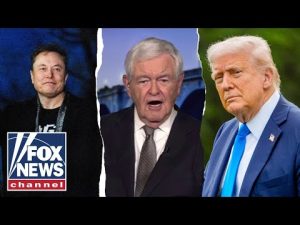In a shocking turn of events, Boulder, Colorado, has become the backdrop for a terrifying incident that unfolded before the eyes of the public. This beautiful city, often associated with scenic views and the whimsically nostalgic show “Mork and Mindy,” was thrust into chaos when a maniac armed with a homemade flamethrower wreaked havoc, injuring a total of 12 people. Thankfully, no fatalities have been reported, but the images of thick smoke and panic in the streets left residents and onlookers in disbelief.
The alleged assailant, a man named Mohammed Solomon, reportedly an illegal alien who migrated during the Biden administration, took to the streets under the guise of political protest, yelling slogans like “Free Palestine.” This echoes a troubling trend, where political rhetoric appears to spark violence rather than debate. Solomon’s actions raise questions about security and border control, as the notion of undocumented individuals committing acts of aggression strikes fear into the hearts of families and communities across the nation.
This incident didn’t happen in isolation. Shortly after the Boulder attack, similarly charged protests erupted nearby, involving individuals with radical beliefs. This brings to light the increasing concerns about domestic terrorism in the U.S., where citizens are reminded that threats can come from various ideologies, not just the ones historically emphasized by the media. The environment created by incessant political divisiveness may provide fertile ground for such acts, as discussions surrounding issues like white supremacy and political extremism are often misdirected.
The diversion from genuine threats to narratives centered around white supremacist ideologies has left law enforcement stretched thin. While a focus on systemic racism has its merits, the reality is that threats from individuals like Solomon present a real and present danger. It raises eyebrows when the conversation pivots away from actual risks, emphasizing an obsession with an imagined foe rather than addressing the complexities of today’s political landscape.
As political figures like former Congressman Mike Gallagher and Secretary of the Navy are confronted with protests and radical behavior, it begs the question: are we losing sight of civility in our discourse? Gallagher’s comments, while well-meaning, illustrate a growing discontent among citizens who feel their voices are being drowned out by those resorting to chaos. With tensions flaring and commentary around political responsibility at an all-time high, the hope is for a return to respect and understanding, where citizens can engage and debate without resorting to fear-inducing tactics.
As we continue to reflect on the implications of these events, it becomes essential for communities to come together and have open dialogues about safety, immigration, and domestic policies. Ultimately, maintaining a society where freedoms are celebrated and safety is prioritized requires thoughtful engagement. A little humor wouldn’t hurt either; perhaps some perspective can turn down the heat in more ways than one!







